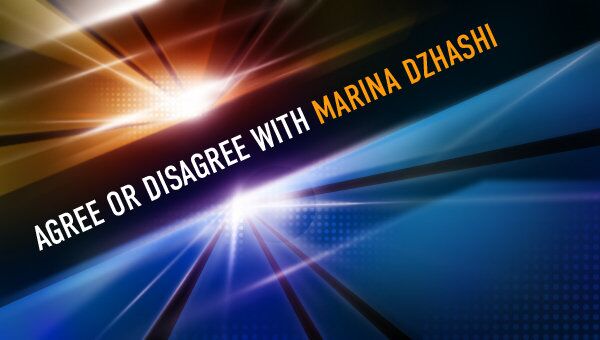While the West is considering more sanctions against Russia the intention to "cripple" the Russian interests extends further to business, culture and even regular individuals. Many call it a principled stand. Host of the Voice of Russia's 'Agree or Disagree', Marina Dzhashi, discusses whether this position is fair and justified with Patrick Young, a eurosceptic and international finance analyst and John Laughland, director of studies at the Institute of Democracy and cooperation in Paris.
Patrick Young: What we’ve got to look at is that the European Parliament elections are coming up on May 25th. You’ve got somebody like the President of Lithuania who is at record levels in the polls because she is trying to get reelected. And in fact, her presidential elections I think is coming up at the same time. She obviously wants a storming victory and she knows that people will rally around the Lithuanian flag on that particular day if she goes for the nationalist vote against Russia.
And obviously, because of the past imperial conflicts, similarly in Poland you’ve seen the governing party in this country actually losing in the polls all the way along until the Ukrainian crisis came along. Now, they’ve been able to demonstrate to their people some degree of strength of leadership which is going to bring the vote back together.
When we come to the horse trading that is going to be the chaos of the European Parliament, where you are going to see perhaps 30% of the parliament being all-manner euroskeptics, that is when the narrative is going to move on. There are stories in the media that maybe America and France are warming up to the idea of a new attack on Syria. And Mr. Obama is desperate to have some sort of a foreign policy victory ahead of his mid-term elections in November.
John Laughland: The accusation is constantly made that Russia is responsible for what is happening in Ukraine, when the truth is precisely the opposite.
There is, in my view, a general psychosis now in the West and in the large section of public opinion towards Russia and Russians. And this psychosis is particularly clear and strong because it is the mirror image of the European ideology.
According to the European ideology we all live in very liberal societies, we are free to make all sorts of choices. That is the European ideology, that is the deal which is offered to the European citizens. And people, unfortunately, buy this story. They believe that they live in a superior, advanced, progressive society.
Russia has not taken the same path. They believe that Russia is backward, that it is authoritarian, that everything in Russia is decided by Mr. Putin, that the whole Russian society is controlled from the Kremlin and so on.
Marina Dzhashi: I think the politicians should agree that the most important goal should be to prevent the current east-west tensions from getting any worse. But we don’t see anything being done to achieve that. Why is that?
John Laughland: Because the Ukrainian crisis has been preconceived as a means by which to inflict a geopolitical defeat on Russia. The Ukrainian crisis is a trap for Russia, because all the options that Russia now has as a result of this crisis are bad.
It was preconceived in order to scupper the plans for the Eurasian Union and because unstable Ukraine is obviously bad for the Russian interests and Russian economy, bad for Russia’s relationship as a gas supplier to Western Europe.
And that is why the West and the people who are in power in Kiev have systematically taken very uncompromising and aggressive positions with regards to the various forms of protest in the east.

